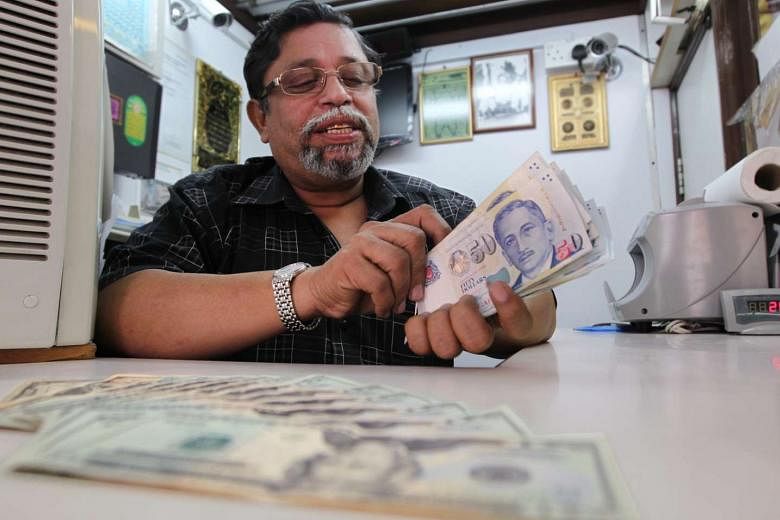The Singapore dollar hit a six-year low against the greenback yesterday amid turmoil on currency markets ignited by China's move to accelerate the yuan's depreciation.
The Singdollar fell as low as $1.4432 to the US dollar yesterday morning - a level not seen since June 2009 amid the financial crisis.
But it is staying strong against other currencies, buying RM3.06 and about A$1.
DBS economist Irvin Seah said Singapore exports will now be pricier.
"This will have an impact on the purchasing power of the consumers over in China, as things from Singapore become more expensive," he said. However, he noted the yuan had devalued against all currencies, so any country exporting to China will be affected.
The currency market mayhem began when China's central bank lowered its reference rate for the yuan to 6.5646 to the US dollar yesterday - the lowest since March 2011.
The rate is based on market supply and demand, with reference to a basket of foreign currencies. It is set before the interbank market opens each business day.
The central bank has weakened the yuan eight days in a row. Yesterday's move makes the yuan 0.5 per cent weaker than Wednesday - the biggest one-day drop since last August.
Mr Sim Moh Siong, Bank of Singapore senior currency strategist, noted that commodity exporters in emerging markets like Brazil and Indonesia will also be affected as demand for their imports falls.
Mr Seah said the devalued yuan could crimp investment flow from China to Singapore and deter mainland tourists from coming here.
The Singdollar has strengthened 2.2 per cent against the yuan over the past three months to 4.59 yuan.
Analysts also expect other emerging markets' currencies to weaken in the wake of the devalued yuan.
A weaker yuan is a concern for emerging markets that compete directly with China in exports, said Mr Andy Wu, senior economist at MNI Indicators, which is part of Deustche Bourse group.
The immediate upshot is that currencies in places including South Korea, Thailand, the Philippines and Taiwan "will continue to adjust downwards in response to yuan moves", he said.
Mr Rajeev De Mello, Schroders head of Asian fixed income, said the rapidly changing yuan policy has created uncertainty, with investors worried over "whether there might be a round of 'beggar-thy- neighbour' currency depreciations to ensure that market share to China is maintained".


